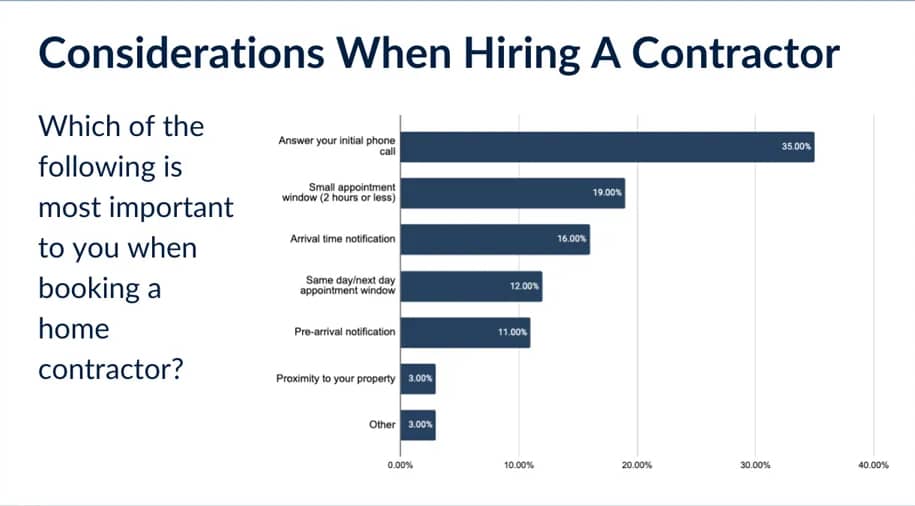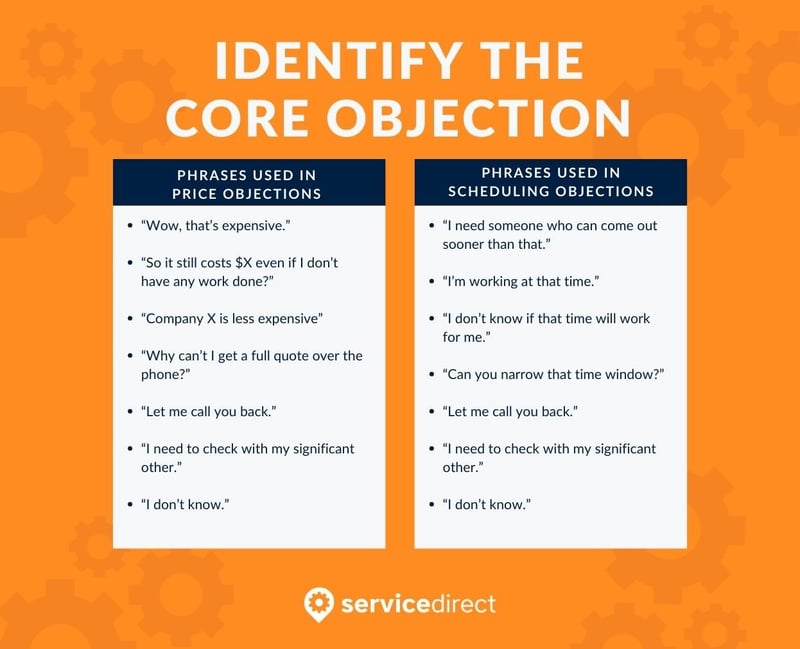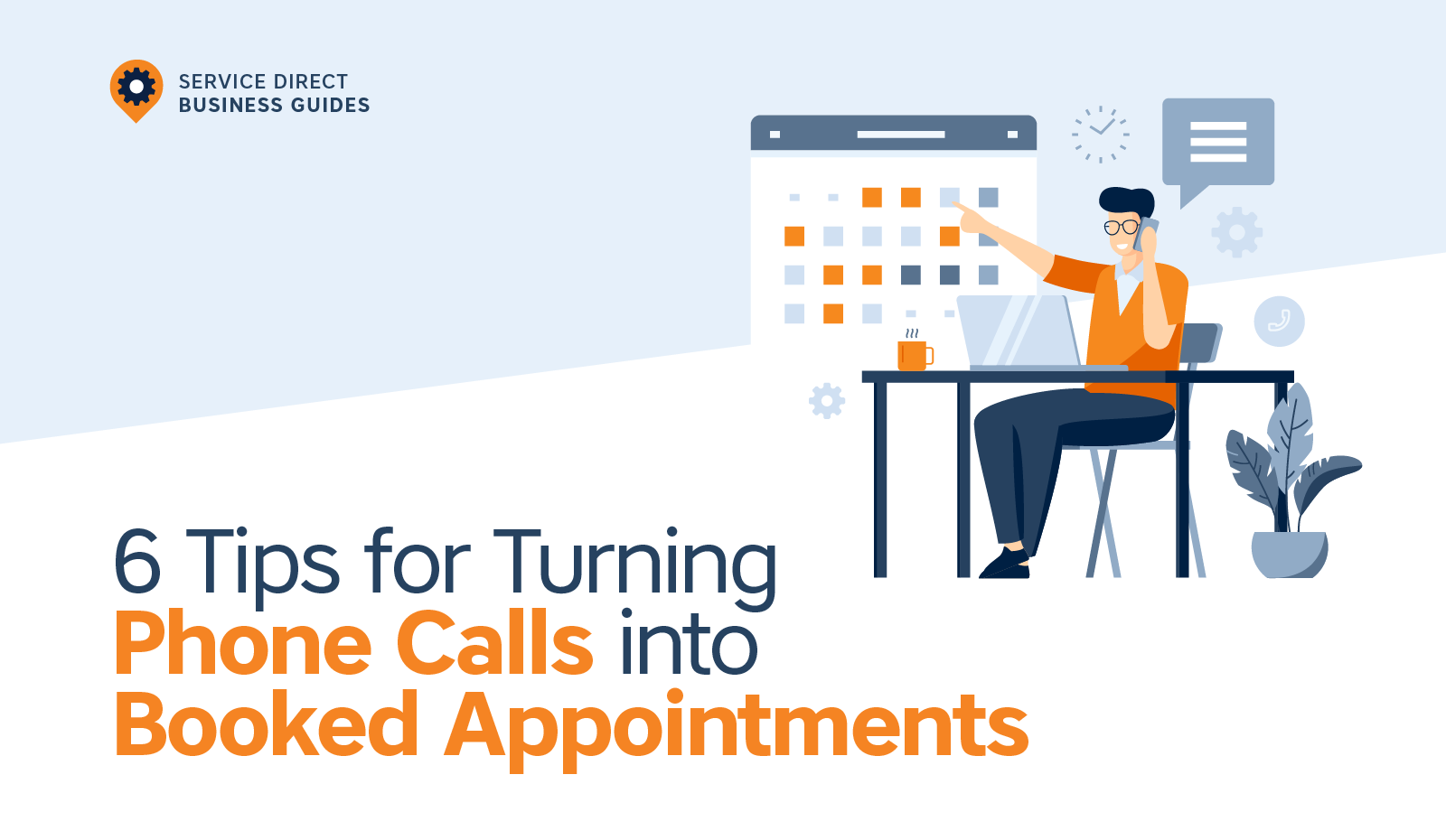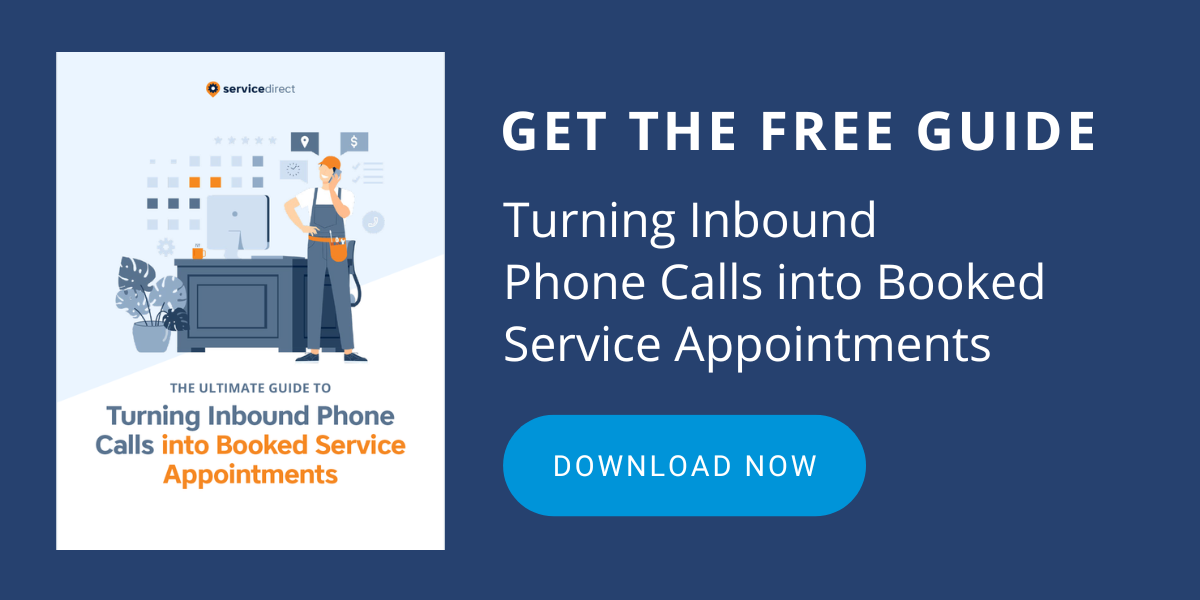6 Tips to Turn Phone Calls into Booked Appointments
In the fast-paced landscape of small service businesses, incoming phone calls play a pivotal role. They are the lifelines that connect potential customers with the services they seek.
Converting these inbound calls into booked appointments isn't just a task; it's a golden opportunity. It's an opportunity to not only meet the caller's needs but also to boost revenue and grow your business.
In fact, increasing conversion rates on phone calls stands out as one of the easiest and most effective ways for small businesses to elevate their bottom line. Yet many small businesses don’t give much thought to how they’re handling incoming phone calls. That’s why Service Direct put together The Ultimate Guide to Turning Inbound Phone Calls into Booked Service Appointments. This comprehensive guide draws on our years of experience providing and reviewing phone leads to small service businesses and is designed not only to reveal the true value of phone calls, but help your business capitalize on the calls you’re already receiving.
In this article, we'll provide a brief overview of six of the guide’s most important tips. Be sure to download the full guide for a deeper look, as well as example audio recordings and scripts you and your team can follow to increase your conversion rate.
1. Understand your callers' expectations
As a service business, you may already be familiar with what customers expect from your company, but they also have some specific expectations that are unique to the initial phone call itself.
It’s important to remember that anyone calling a service company is most likely dealing with some sort of unexpected issue, often with their home. They are entering into the conversation with a need, and many may already be feeling frustration or stress because of the issue they’re calling about.
Call takers must recognize this mindset and be prepared to express empathy for the caller’s situation. Of course, callers aren’t just looking for a shoulder to cry on, they expect the person they’ve called to be knowledgeable enough about the subject to know whether the issue is one the business can fix.
Ultimately, callers want one thing - a solution to their problem. Ideally in the form of a booked service appointment with a business they can trust to get the job done.
There are several other expectations callers have, which you can read about in greater detail in The Ultimate Guide to Turning Inbound Calls into Booked Service Appointments. However, by addressing them with empathy and respect, having the industry knowledge to understand their issue, and being able to provide a solution in the form of a service appointment, your call takers will be off to a great start.
2. Make a Great First Impression
Creating a positive first impression is essential. Before you even get to the technicalities of the caller’s issue, there are a couple of things call takers can do to get things started on the right foot.
The first and most important: actually answer your phone! It may sound obvious, but our research found that while businesses on average thought they were answering 97% of phone calls, they were actually only answering 71%. This is especially concerning considering 64% of homeowners said that answering their initial phone call was important, and 35% said it was the most important thing when choosing a contractor.

Crafting the Perfect Greeting
The very first thing a caller will hear is your greeting. Use a warm and professional tone that conveys friendliness and competence. Introduce yourself with your name and the name of your business to assure the caller they’ve reached the right place.
Tone of voice matters. You don’t want to come off as distracted, disinterested, or disrespectful. Even though they can’t see it, a caller can tell whether the person on the other end of the call is smiling, so put on a happy face and be sure to thank them for their call.
Building Rapport
Now that you’ve introduced yourself and gotten the caller's name, use it throughout the conversation to personalize the interaction. Show empathy by acknowledging the difficulty or frustration of their situation, letting them know you genuinely care about their needs or concerns.
To further strengthen the connection, practice active listening, demonstrating that you're not just hearing but truly comprehending their words. These rapport-building techniques help foster a sense of trust and comfort, making the caller more inclined to engage and ultimately schedule an appointment.
3. Determine whether you can help the caller
Before moving forward, assess whether your business can fulfill the caller's needs. You want to qualify the caller early in the conversation to avoid wasting time – both yours and theirs.
Start by determining if your services align with the caller's specific requirements. Does your business offer the services needed to solve the caller’s problem?
Next, check if the caller is located within your service area, as geographical constraints may affect your ability to assist them effectively.
Finally, make sure the caller is the right person to be making this decision. That is, do they own the property? Often tenants will take it upon themselves to get something fixed without realizing that’s the owner’s responsibility.
Once you know that the caller needs the services you offer, is within your service area, and has the authority to make the decision to hire you, you can start gathering the details about their situation that your technician will need to know.
4. Remember to Ask for the Appointment
It's surprising how often call takers – especially those without much of a background in sales – tend to skip the crucial step of actually asking for an appointment. To maximize the chances of converting the call into a booked appointment, remember to be direct but always maintain a polite and courteous tone when making the request.
Suggest a specific time that you have a field technician available, but be clear that you can be flexible to accommodate the caller's schedule. Check out The Ultimate Guide to Turning Inbound Phone Calls into Booked Service Appointments for example scripts and recordings of great ways to make the ask.
5. Overcome Common Objections and Hesitations
Not every caller is going to be ready to make an appointment right away. There are any number of unique objections or excuses you may hear, but they mostly boil down to one of two things: cost or scheduling. Learning to identify which of these you’re dealing with is a critical skill for any call taker, and can lead to a considerable boost in your call conversion rate.

The key to overcoming price objections is countering with your value proposition. You provide top-of-the-line service, you’ve been in this business for years, and customers keep coming back because they’re satisfied with the work you do.
Scheduling objections are all about persistence. If they’re concerned that you can’t get a technician out to their location quickly enough, encourage them to make an appointment anyway, in case they aren’t able to find another company that can offer an earlier time. For nearly any scheduling objection, putting time on the calendar as a placeholder is typically a smart move.
6. Train All Potential Call Takers on Proper call handling
Last but not least, ensure that your entire team is equipped with the right skills. Many small businesses don’t have dedicated customer service representatives or salespeople to handle calls, which means anyone who might answer an inbound call needs to be properly prepared to do so.
Whether the caller gets the business owner, a technician, or an office manager on the phone, they’re still coming in with the same expectations. Keep your entire staff updated on call handling best practices, and make sure critical pieces of information like your service offerings and service area are readily available to anyone who answers the phone.
Conclusion
Exceptional customer service and a well-structured approach are key to improving your ability to turn inbound calls into booked appointments. Start with these six tips, and check out the full guide to see a big impact on your company’s conversion rates. Good luck!




